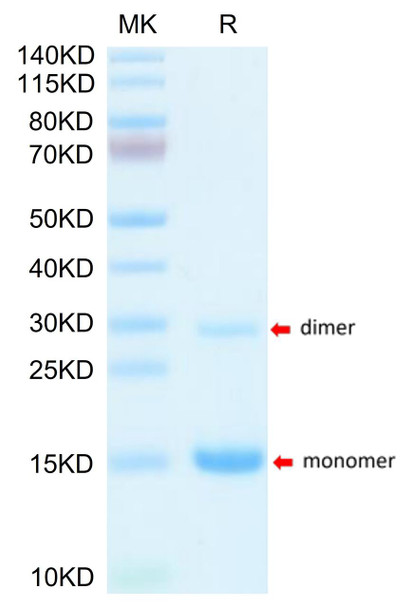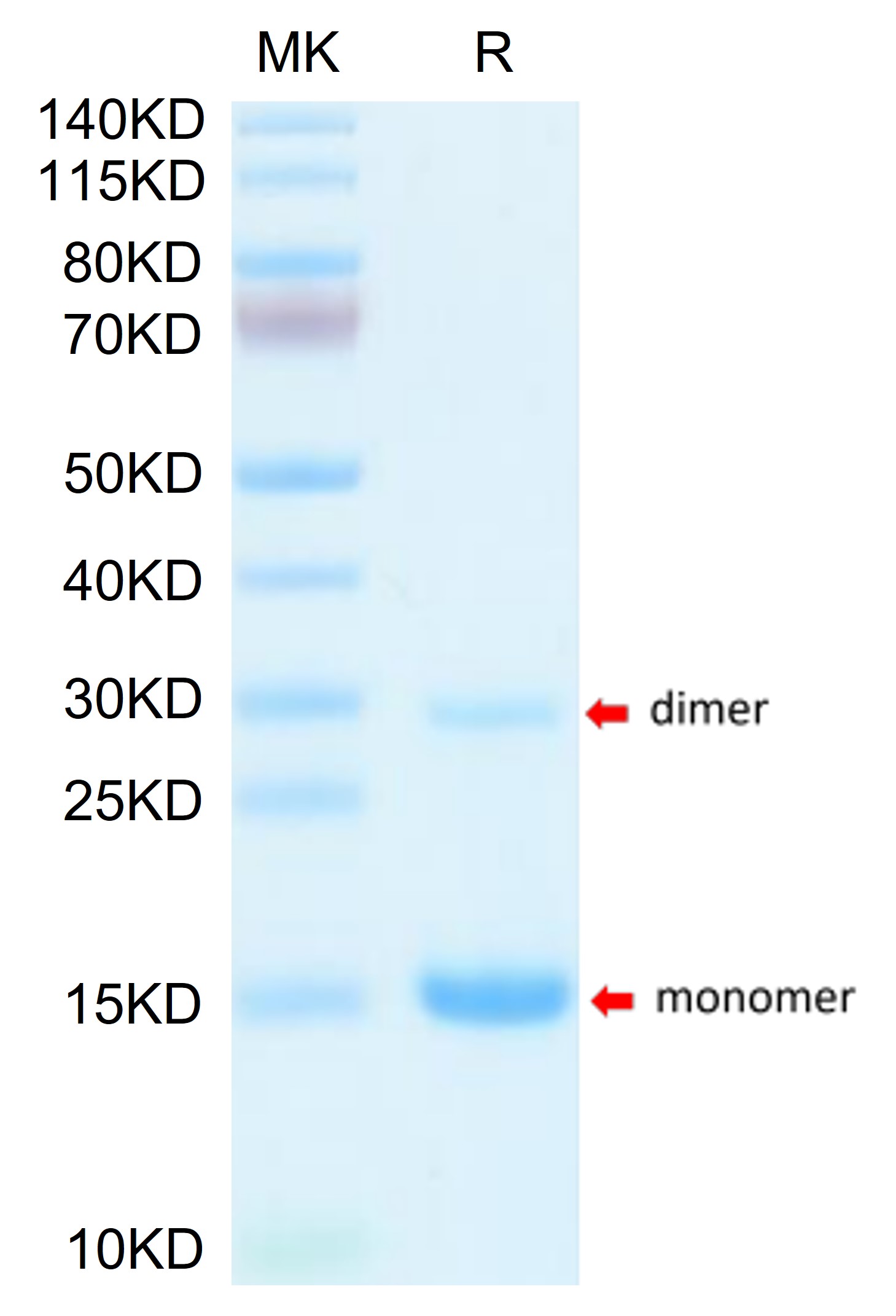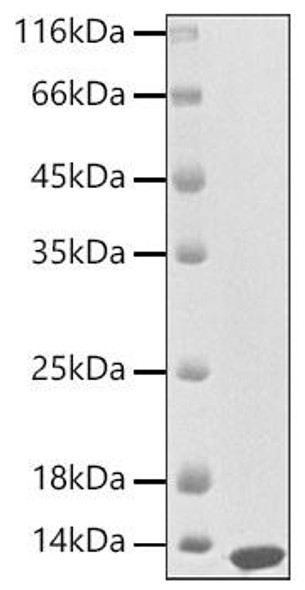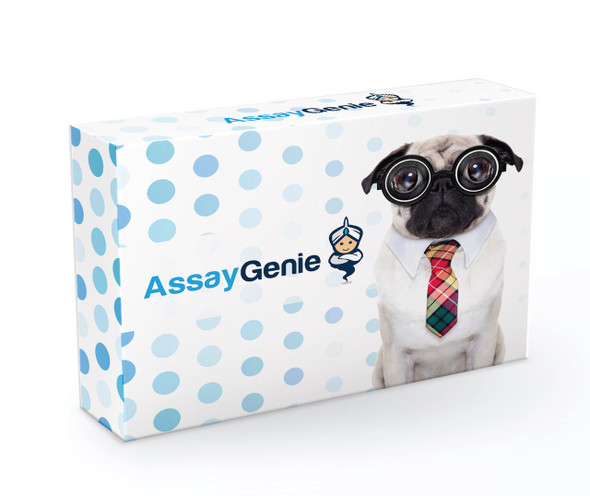Description
Recombinant Mouse S100-A9 Protein
The Recombinant Mouse S100-A9 Protein is a high-quality recombinant protein designed for murine biological research applications. This protein serves as an essential reagent in mouse model studies, comparative immunology research, and preclinical therapeutic evaluations, enabling scientists to investigate S100-A9 biology and its relevance to human disease mechanisms through translational research approaches.
This product (SKU: RPCB1882) is produced using E. coli and features a N-His tag for convenient detection and purification. The protein exhibits a calculated molecular weight of 14.1 kDa with an observed molecular weight of 29 kDa (dimer)&15 kDa (monomer) under denaturing conditions, achieving ≥ 95 % as determined by SDS-PAGE., ensuring exceptional quality and consistency for research applications.
Key Features
| High Purity by Affinity Chromatography | |
| Mammalian & Bacterial Expression Systems | |
| High lot-to-lot consistency via strict QC |
| Product Name: | Recombinant Mouse S100-A9 Protein |
| SKU: | RPCB1882 |
| Size: | 100 μg |
| Reactivity: | Mouse |
| Synonyms: | S100-A9, Calgranulin-B, Calprotectin L1H subunit, MRP-14, p14, CAGB, MRP14, S100A9 |
| Tag: | N-His |
| Expression Host: | E. coli |
| Calculated MW: | 14.1 kDa |
| Observed MW: | 29 kDa (dimer)&15 kDa (monomer) |
| Gene ID: | 20202 |
| Protein Description: | High quality, high purity and low endotoxin recombinant Recombinant Mouse S100-A9 Protein (RP03159LQ), tested reactivity in E. coli and has been validated in SDS-PAGE.100% guaranteed. |
| Endotoxin: | < 1 EU/μg of the protein by LAL method. |
| Purity: | ≥ 95 % as determined by SDS-PAGE. |
| Formulation: | Supplied as 0.22μm filtered solution in PBS, 1mM DTT, 20% Glycerol pH 7.5. |
| Storage: | Store at -70℃. This product is stable at ≤ -70℃ for up to 1 year from the date of receipt. For optimal storage, aliquot into smaller quantities after centrifugation and store at recommended temperature. Avoid repeated freeze-thaw cycles. |
S100A8 and S100A9 (also known as MRP8 and MRP14, respectively) are Ca2 binding proteins belonging to the S100 family. They often exist in the form of heterodimer, while homodimer exists very little because of the stability. S100A8/A9 is constitutively expressed in neutrophils and monocytes as a Ca2 sensor, participating in cytoskeleton rearrangement and arachidonic acid metabolism.







